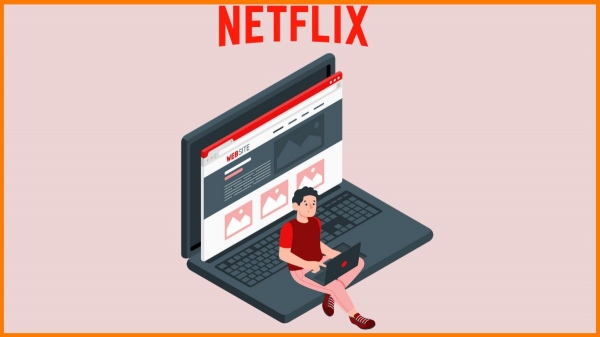Look who's entering the E-commerce Space- It's Netflix
Netflix is said to have developed and launched the e-commerce site with Shopify. With revenues under pressure, Netflix seeks new avenues Netflix, for the re
- by Gaurav Grover 2021-06-15 06:35:03
Netflix has announced that it is launching its own e-commerce store, Netflix.shop, which will sell limited edition products based on its offerings and brand. The store is available in the US for now and will roll out to other countries in the coming months.
"Items debuting this month include streetwear and action figures inspired by the Yasuke and Eden anime series; as well as limited-edition clothing and decorative items inspired by Lupin in collaboration with the Musée du Louvre," Netflix said in a blog post.
Also includes anime-inspired collectibles from emerging designers including Nathalie Nguyen, Kristopher Kites, and Jordan Bentley, with products based on "Stranger Things" and "The Witcher."
Netflix is said to have developed and launched the e-commerce site with Shopify.
With revenues under pressure, Netflix seeks new avenues

Netflix, for the record, already offers consumer products through partners like Target, Walmart, Amazon, H&M, and Sephora. But entering the field of e-commerce directly and linking content to e-commerce reflects the platform's focus on capitalizing on new sources of income.
It may be recalled that Netflix recorded 24% revenue growth in the first quarter of 2021, but faced a slowdown in subscription growth. It's pretty clear that the streaming platform is a bit worried about the pressure on revenue.
Netflix, like many OTT platforms, enjoyed growth when the world was in lockdown. But now that things are slowly returning to normal, OTT platforms cannot expect such sustainable growth. Their rise will be more calculated.
In this case, streaming platforms are forced to look for more revenue opportunities. Netflix is launching a complete production facility in Mumbai. This is expected to help produce it in-house, even when exploited commercially by allowing other production houses to use it. It also plans to enter the gaming world.
The additional revenue opportunities should help Netflix respond to (investor) demands to bring ads to its platform, which it has vehemently refused to do.
Also Read: Four lessons the Covid crisis teaches you about investing
POPULAR POSTS
Loan EMIs to Drop as RBI Slashes Repo Rate - Full MPC December 2025 Highlights
by Shan, 2025-12-05 11:49:44
Zoho Mail vs Gmail (2025): Which Email Platform Is Best for Businesses, Startups, and Students?
by Shan, 2025-10-09 12:17:26
PM Modi Launches GST Bachat Utsav: Lower Taxes, More Savings for Every Indian Household
by Shan, 2025-09-24 12:20:59
$100K H-1B Visa Fee Explained: Trump’s New Rule, Clarifications & Impact on Indian Tech Workers
by Shan, 2025-09-22 10:11:03
India-US Trade Deal Soon? Chief US Negotiator Arrives in Delhi as Talks Set to Begin Tomorrow
by Shan, 2025-09-15 11:54:28
Modi Meets Xi: Trump’s Tariffs, Strategic Autonomy, and the Future of Asia’s Power Balance
by Shan, 2025-09-03 06:40:06
Google Claims Gemini AI Uses Just ‘Five Drops of Water’ Per Prompt, Sparks Debate
by Shan, 2025-08-22 12:34:27
RECENTLY PUBLISHED

Pine Labs IPO 2025: Listing Date, Grey Market Premium, and Expert Outlook
- by Shan, 2025-11-05 09:57:07

The Agentic Revolution: Why Salesforce Is Betting Its Future on AI Agents
- by Shan, 2025-11-05 10:29:23

Top 10 Insurance Companies in India 2026: Life, Health, and General Insurance Leaders Explained
- by Shan, 2025-10-30 10:06:42

OpenAI Offers ChatGPT Go Free in India: What’s Behind This Big AI Giveaway?
- by Shan, 2025-10-28 12:19:11

Best Silver Investment Platforms for 2025: From CFDs to Digital Vaults Explained
- by Shan, 2025-10-23 12:22:46





 Subscribe now
Subscribe now 